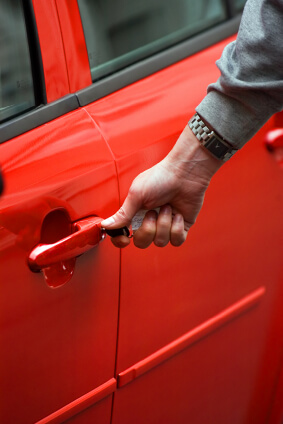Lemon Proof: Avoid Being Scammed When You Shop for Your Next Vehicle

One of the best ways to make sure that you get a fair shake is to familiarize yourself with the top tricks that salespeople of the latter variety ply on unwitting consumers. When you go in prepared to recognize them, you can do a lot to level the playing field.
Don’t get yo-yo financed
Also called lost financing, yo-yo financing involves having a salesperson offer the customer an attractive price on a car and highly favorable loan terms, and then make the sale. Except that a couple of weeks later, they call back to tell the buyer that their loan application was rejected, after all. They then offer them a new loan at a much higher rate. Since the buyer has already driven the car home, he feels he has no choice but to accept whatever terms he gets.
If you have a credit score below 680, you should expect to get a somewhat uncompetitive APR on any loan. If you getting an attractive low quote too easily, you’re probably being set up to get yo-yo-ed.
There is another version to this scam. The dealer calls in weeks after the sale to tell you that he has an even better deal for you that will have you paying less than you originally thought. He doesn’t tell you that he only arrives at the lower payment through extending the loan term by years.
In general, it isn’t a good idea to find financing directly at the dealership. Instead, you should arrange for it elsewhere, on your own.
The scam where they refuse outside financing
When you walk into a dealership with a check from a third-party bank or lender, the dealership may simply refuse to accept the check. Supposedly, they’ve had experience with the lender, and they are known to not honor their checks. This is a lie, though. They simply want to twist your arm into buying their own financing. You can simply call them on it.
The scam that involves outright lying
Many buyers neglect to check their credit score before they head into the dealership. Some dealerships notice this, and simply lie to their customers, telling them that they have a poor credit score, and that they can only get expensive financing. You can easily know if you’re being lied to if you go in having checked your credit score first.
It’s important to know what the dealer price really is
It won’t do to simply know what the scams are. You also need real information on what the dealer’s actual price is. It’s the only way to know what the fair sticker price to pay can be. Most car buying columns tell buyers to look for the invoice price, and add on perhaps $1,000 to give the dealer his margin. This isn’t a very good idea, though.
While dealer invoice prices certainly are close to the best price that you can pay, they aren’t quite there yet. The invoice includes a 3% holdback that dealers keep to offer fleet buyers and other large customers. It also includes up to $1,000 that the manufacturer pads the price with for delivery allowances and other rebates. When you pay invoice,, then,, you’re still leaving perhaps $3,000 on the table.
It’s the rare car pricing service that shows consumers how to buy below invoice.
The dealer prep fee trick
Dealers may not be able to simply ask you for more for a car; they may be able to tack on fees with complicated names, though, in the hope that you will quietly accept them. The dealer prep fee is one such fee. It involves a charge worth $500 or so for the dealer to help “prepare” a car arriving from the factory. Usually, all it involves is taking the plastic off the seats and giving the car a wash. The customer who doesn’t know “prepping” is will simply pay up.
As high-value items, car sales do attract all manner of unscrupulous practices. Luckily, you don’t need to work very hard to find the information that can help you. It only takes a little reading up.
Paul Hollins is a personal finance blogger with inside knowledge of the car salesroom. He uses his personal expertise to blog on ways to save money.


